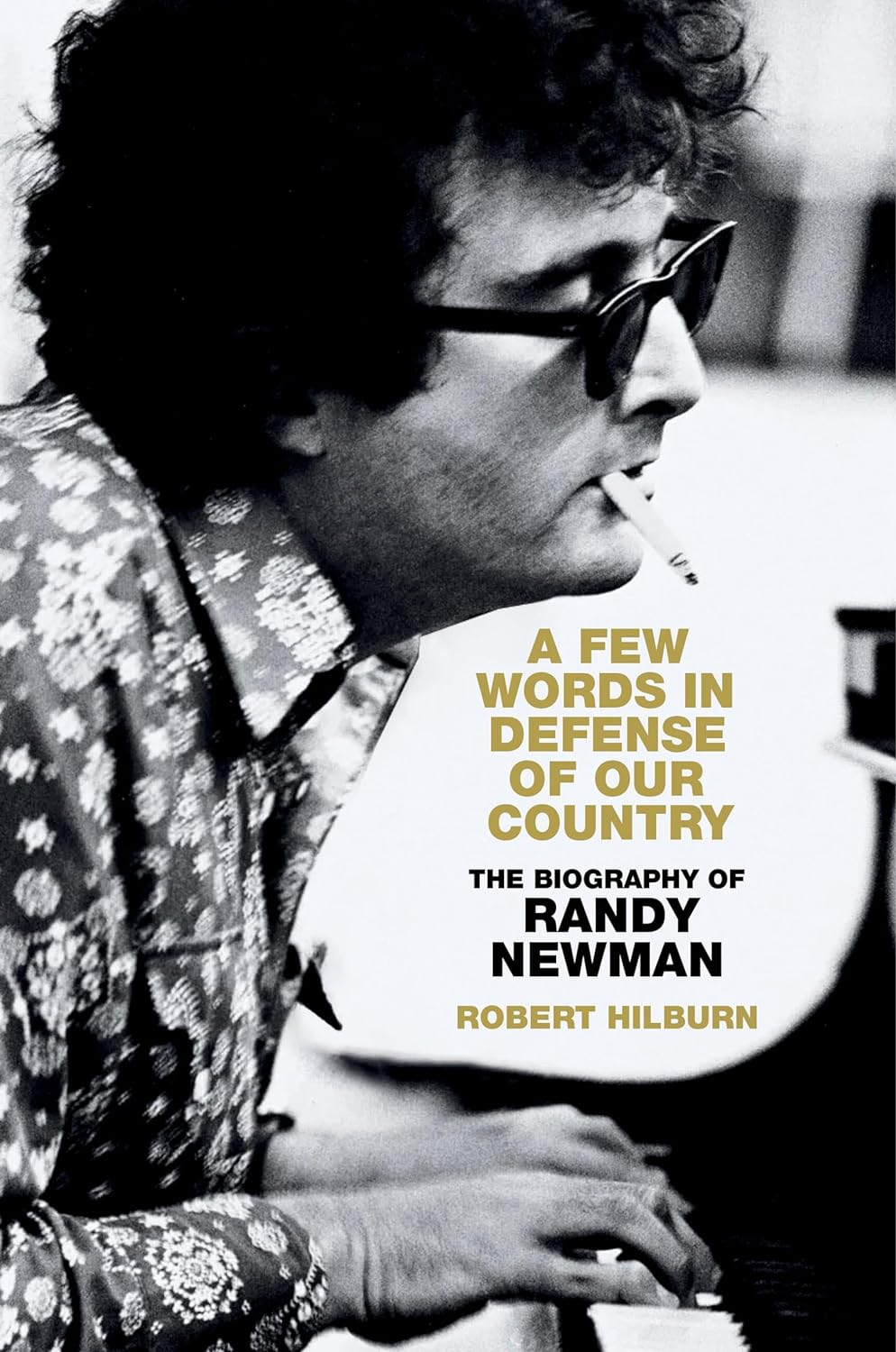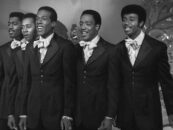Randy Newman is Subject of New Biography From Noted Music Author Robert Hilburn
by Best Classic Bands Staff One of music’s most acclaimed songwriters is the subject of a new biography. A Few Words in Defense of Our Country: The Biography of Randy Newman is from noted music author Robert Hilburn. The 544-page book, told with its subject’s full cooperation, arrived October 22, 2024, via Hachette Books, and is available in the U.S. here and in the U.K. here. Its author is a decades-long Los Angeles Times music critic.
One of music’s most acclaimed songwriters is the subject of a new biography. A Few Words in Defense of Our Country: The Biography of Randy Newman is from noted music author Robert Hilburn. The 544-page book, told with its subject’s full cooperation, arrived October 22, 2024, via Hachette Books, and is available in the U.S. here and in the U.K. here. Its author is a decades-long Los Angeles Times music critic.
From the publisher’s announcement: Randy Newman is widely hailed as one of America’s all-time greatest songwriters, equally skilled in the sophisticated melodies and lyrics of the Gershwin-Porter era and the cultural commentary of his own generation, with Bob Dylan and Paul Simon among his most ardent admirers. While tens of millions around the world can hum “You’ve Got a Friend in Me,” his disarming centerpiece for Toy Story, most of them would be astonished to learn that the heart of Newman’s legacy is in the dozens of brilliant songs that detail the injustices, from racism to class inequality, that have contributed to the division of our nation. Rolling Stone declared that a single Newman song, “Sail Away,” tells us more about America than “The Star-Spangled Banner.” And yet, his legacy remains largely undocumented in book form—until now.
He is a novelist disguised as a songwriter and piano player. He is a historian of the American character, a harsh critic of the country’s failings and a loving celebrator of its successes. He is interested in characters and never writes in the first person and he never writes love songs.
In A Few Words in Defense of Our Country, veteran music journalist Hilburn presents the definitive portrait of an American legend. The author has known his subject since Newman’s club debut at the Troubadour in 1970, and the two have maintained a connection in the decades since, conversing over the course of times good and bad. Though Newman has long refused to talk with potential biographers, he now gives Hilburn unprecedented access not only to himself but also to his archives, as well as his family, friends, and collaborators. Dylan, Simon, John Williams, Linda Ronstadt, Don Henley, Bonnie Raitt, Chuck D, James Taylor, and New York Times’ Pulitzer-winning columnists, Thomas Friedman and Wesley Morris, among others, contributed to the book. In addition to exploring Newman’s prolific career and the evolution of his songwriting, A Few Words in Defense of Our Country also dives into his childhood and early influences, his musical family that ruled Hollywood movie scores for decades, the relationships that have provided inspiration for his songs, and so much more.
In an interview with the New York Times, published on Oct. 17, Newman said, “What I really wanted was to have the respect from fellow workers in the field. That Bob [Dylan] or Paul Simon, Jackson Browne, Don Henley, Linda Ronstadt, that those people liked what I did mattered to me — maybe an inordinate amount.”
Advance praise for the book came from Cameron Crowe: “Leave it to Hilburn to pull back the curtain on the incredible life of Newman, a shy genius who clearly trusted him enough to point him in all the right directions.” And from fellow lyricist Bernie Taupin: “Robert Hilburn presents Randy Newman front and center as an American treasure, a political lightning bolt and one of the finest songwriters of his generation. Like all of Hilburn’s biographies it is addictive and utterly definitive, an intoxicating blend of scrupulously researched detail and unearthed treasures.”
Newman, born November 28, 1943, turned 81 in 2024. Though he was never a top selling act as a solo artist, he earned a #2 single with 1977’s satirical “Short People.” Its accompanying album, Little Criminals, was his sole title to reach the Top 10. Among his other popular songs are “Mama Told Me Not To Come,” recorded most prominently by Three Dog Night and which topped the Hot 100 in 1970, as well as 1983’s “I Love L.A.” (Despite the latter’s popularity at the time on the fledgling MTV channel and its ubiquitousness in the decades since, the song never charted on the Hot 100.) His recordings are available here.
Related: Our Album Rewind of Newman’s Sail Away
Hilburn was the chief pop music critic and pop music editor of the Los Angeles Times from 1970 through 2005. Since then, he has focused his attentions on writing biographies of some of the most celebrated musicians in modern history, including John Lennon, Johnny Cash, and Paul Simon.







5 Comments so far
Jump into a conversationRandy Newman is an American treasure. His songs are unbelievably rich in texture and messaging. What a gift he is!
“He … never writes in the first person and he never writes love songs.” That is clearly untrue, as numerous examples demonstrate (like “Marie”). But what is true is that he always writes from the point of view of characters; he is not a confessional artist like so many others.
Yes, that’s a clearly incorrect comment. There’s many love songs he’s written, very tender ones, some more brutally honest. And he’s often written in the first person, “Old Man’ for example, a deeply personal song.
Newman wrote a stunning song about stalking, Suzanne.
“Saw your name in a telephone booth. Read all about you baby, I hope it was the truth. I wrote down your number, looked up your address too.”
The menace continues. underscored by a wonderfully creepy organ line that’s a bit like fingernails dragged on a blackboard (I date myself).
Musical scoring is in his blood. He gets more from a few notes than many other pop composers.
Not surprising that musical scoring is in his blood considering the illustrious family he comes from, including film composers Emil and Alfred.